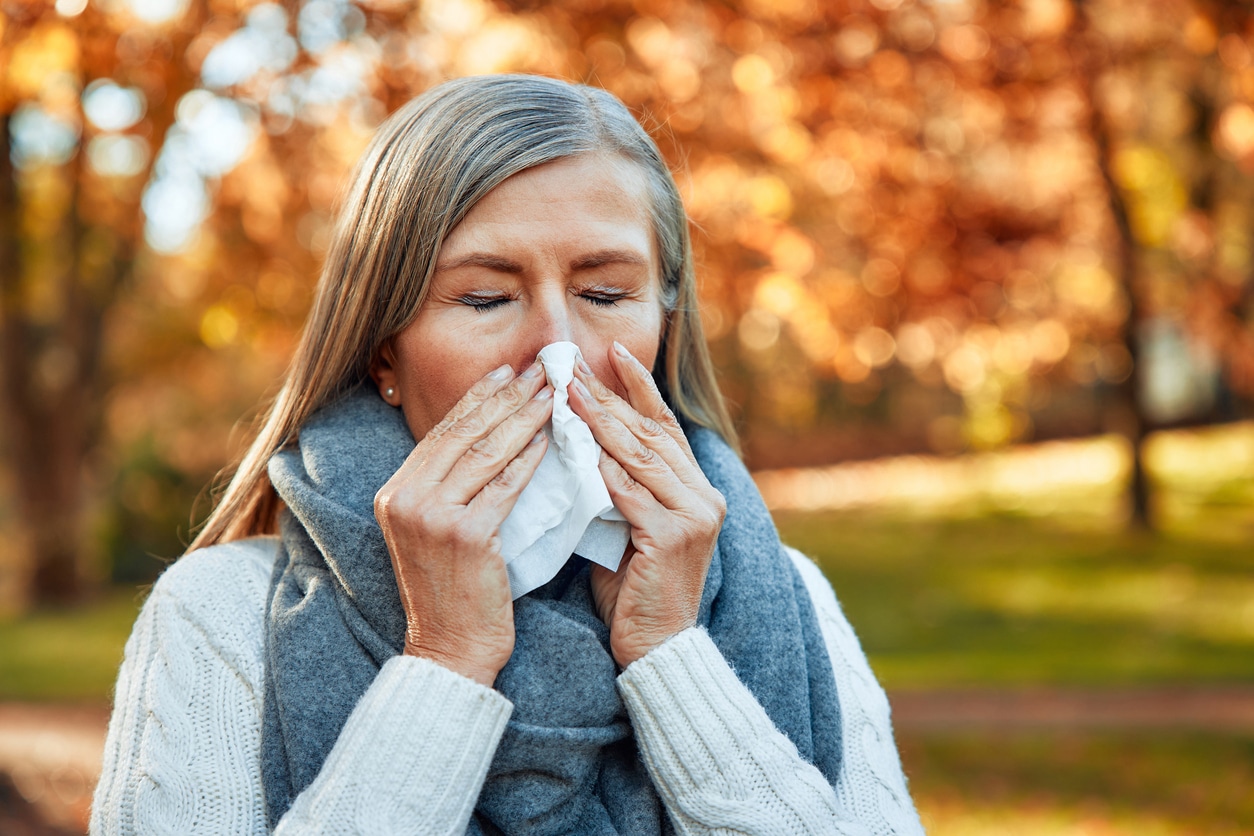As the air grows crisp, it’s the perfect time to pull out your favorite fall sweaters and enjoy a steaming cup of apple cider. For many Minnesotans, this cozy season also brings one unpleasant guest: fall allergies.
Understanding Two Common Fall Allergens

Ragweed and mold spores are two common allergens affecting Minnesota residents.
Ragweed
Ragweed pollen is a powerful allergen, with a single plant producing up to one billion pollen grains.
The season typically runs from late July through early November, but warmer winters keep pushing it longer. Researchers tracked the change and found that between 1995 and 2015, ragweed season increased by 18 to 21 days. For allergy sufferers, that means nearly three extra weeks of sneezing, itchy eyes and congestion.
Mold
People with mold allergies react to the tiny spores that molds release. A few types of allergenic molds include Cladosporium, Aspergillus and Alternaria.
Mold thrives in humid environments, with spore counts typically peaking from early spring through late fall, especially during periods of snowmelt or snowfall. Levels can also surge after heavy rainfall, particularly in September and October, when decaying leaves create ideal conditions for growth.
What Symptoms Can Minnesotans Expect?
Fall allergy symptoms may include:
- Runny or stuffy nose
- Coughing or an itchy throat
- Sneezing
- Itchy, red or watery eyes
- Hives
Learning how to manage these symptoms is key to a great fall.
Tips for Managing Fall Allergies
Take the following steps to reduce ragweed and mold exposure:
- Hire someone to do yard work, like raking or mowing. If you need to do it yourself, wear a mask and goggles.
- Run a dehumidifier in your home.
- Run the kitchen and bathroom exhaust fans while cooking or showering.
- Clean your home regularly to decrease mold spores and ragweed buildup.
- Change your clothes and shower after coming home from outdoor activities.
- Keep your windows and doors closed or install allergen filtering screens.
In addition to avoiding the allergens, schedule an appointment with our experts at Midwest Allergy & Asthma to discuss medical treatment options like daily medication or immunotherapy. Our team is here to help you feel your best all year long.
